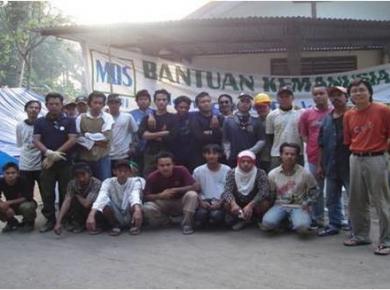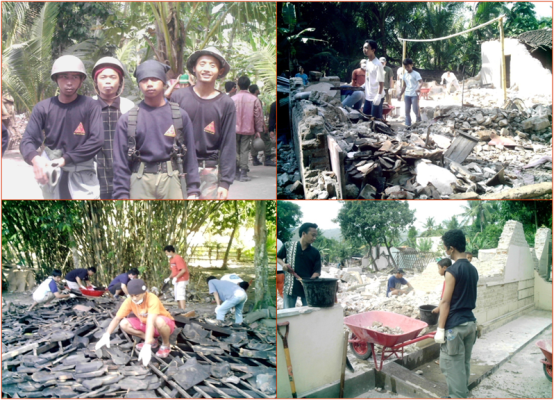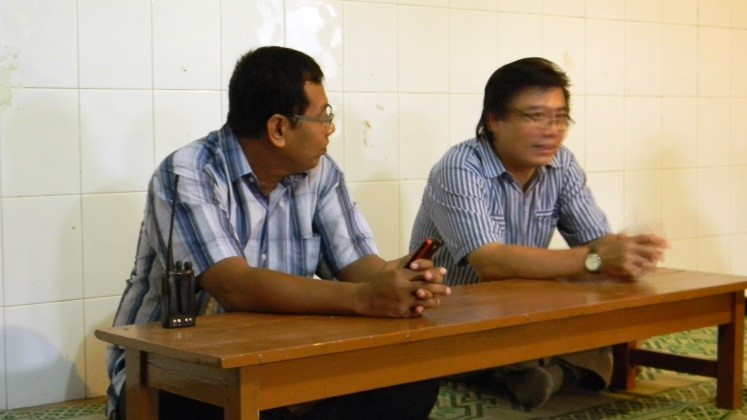Posted: October 19, 2016
Indonesia is located on fault lines – geographic and sociological. The island chain at the convergence of 3 tectonic plates is prone to earthquake, tsunamis and volcanoes; its people scattered over thousands of islands speak some 700 languages, and the state recognizes six religions (Islam, Christianity – Protestant and Catholic, Hinduism, Buddhism, Confucianism).
In the midst of this volatility, Gereja Kristen Muria Indonesia, an Indonesian Mennonite conference, is building peace through disaster relief and community development.
“Diversity is an extraordinary wealth for the people of Indonesia, but if it is not managed properly, conflict can undermine the integrity of the state and nation,” says Mennonite Diakonal Service director Paulus Hartono.
Mennonite Diakonal Service (MDS – initials shared with North America’s Mennonite Disaster Service) directs its humanitarian service and peace work into three avenues of mission: disaster response, conflict transformation, environmental preservation. Empowering services like community economic development support organic agriculture, scholarships and health initiatives.
MDS collaborates with other nongovernmental organizations to respond to disasters (like earthquakes) within Indonesia’s borders, and in the region, like sending trauma recovery consultants to the Philippines after Typhoon Haiyan.
MDS’s work not only addresses structures and landscapes but also interfaith relations and even people’s hearts.
In pursuit of GKMI’s goal to function “for the glory of God and for a caring and peaceful society,” the churches combined several pre-existing efforts (like FKPI, Indonesia Forum for Humanity and Peoplehood) to form MDS in 2006.
Fledgling MDS was in the midst of a training session when news of the 2006 Yogyarta earthquake arrived. Sessions were cancelled as the members leaped into action. Hearing that relief was having difficulty getting through due to looting and rioting, Hartono asked a Hizbullah commander to send personnel to accompany the supplies. (Hizbullah is a militant nationalistic youth organization.)
After the emergency passed, MDS invited the commander to apply his troops to rebuilding efforts. Encamped in the church yard, together Christians and Muslims worked, slept, cooked, ate and played guitar “in one language: humanity,” says MDS director Paulus Hartono. “Religious language was replaced with actions showing love to each other.”
Co-authored with Muslim leader Agus Suyanto, Hartono has written a book on Islamic-Christian encounter for peace in Indonesia, called Laskar dan Mennonite (Paramilitary and Mennonite).
—Mennonite World Conference release by Karla Braun
Photos courtesy of Paulus Hartono.
|
Christian and Muslim young people work together in disaster rebuilding. |
|
|
(r) Paulus Hartono, director of MDS Indonesia, and Hizbullah commander Yani Rusmanto. |



Comments: